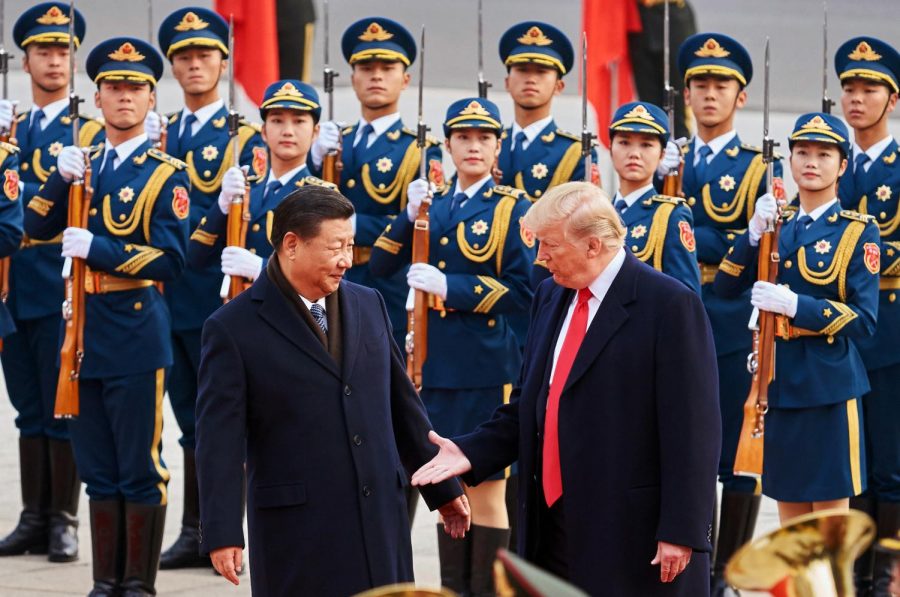G20 meeting will produce trade deal or disaster
December 6, 2018
Last Saturday, President Trump and President Xi met in Buenos Aires during the annual G20 Summit. This meeting between leaders of the two largest economies in the world decided whether there will be a new trade deal or a new worldwide disaster.
The history of the 2018 U.S.-China trade war remains far too complicated to list every detail. However, the main part of this catastrophic trade conflict is President Trump threatening to place higher tariffs, from 15 percent to 30 percent, on certain products imported from China.
Trump tweeted last April he wants a “big focus on open and fair trade with China.” Obviously, “fair trade,” in his eyes also includes punishing China for its policy of forcing foreign companies to share intellectual property rights with Chinese companies.
It is harmful to start a trade war. Free market is always better than a trade war since everyone will benefit from cheaper products and services with higher quality. Let’s assume you want to buy a fashionable hat (which is almost definitely made in China nowadays). Since Trump wants to place a 30 percent tariff on the hat, you will have to pay more than before. Its price might be higher than those made in the U.S., but you cannot tell any difference between the quality of the two.
“Every time this trade war escalates, the risk to U.S. consumers grows,” said Matthew Shay, president and CEO of the National Retail Federation, in a statement. “With these latest tariffs, many hard-working Americans will soon wonder why their shopping bills are higher and their budgets feel stretched.”
Get The Daily Illini in your inbox!
Shay also called tariffs “a tax on American families.”
If there was no trade war, you would have enjoyed the fashionable hat with a low price. You might have another question: Since hats made in U.S. are much more expensive and few people will choose them, where should U.S. hat producers go? Just let them suffer quietly?
That is exactly what President Trump remains concerned about. He focuses on “America first,” which means American workers should not be a sacrifice of economic globalization.
Our country has also witnessed more and more international students finding jobs (or “stealing jobs,” according to some radicals) in California and New York. Trump also implied he might limit the number of employment visas for international students.
To be fair, China needs to move on. Only if China could stop encouraging domestic companies to steal intellectual property rights from foreign companies would President Trump suspend the trade war.
This problem challenges all foreign companies and requires reform. Unfortunately, after Peter Navarro, director of the Office of Trade and Manufacturing Policy, urged China to proceed property rights reform before the meeting between President Trump and President Xi at the G20 Summit, there was no action on China’s side. That might be the reason why any news of this meeting has not yet been released.
The White House has shown optimism about making progress, but Trump has threatened even more tariffs if each side cannot reach a deal. Washington and Beijing appeared to have a difficult task in striking a concrete trade agreement even as Trump seeks a political win on one of his signature issues.
On Dec. 30, a senior administration official said Trump “doesn’t feel pressure to make a deal for the sake of a deal” and feels “he has more time.” The president has gotten information from advisers that the economy “continues to show resilience and strength” despite a recent slide in U.S. stock prices.
Without doubt, we all expect a new trade deal to be confirmed by both sides. High tariffs will be canceled, restrictions on employment visa applications will be removed and economy will continue its growth.
Maybe we will soon be aware of all the results after this pivotal meeting takes place.
As of now, the U.S. and China have agreed to suspend placing higher tariffs on products made in both countries until Jan. 1, 2019. The trade war called a truce, but more negotiations between the two countries remain unresolved.
Daniel is a graduate student in LAS.







